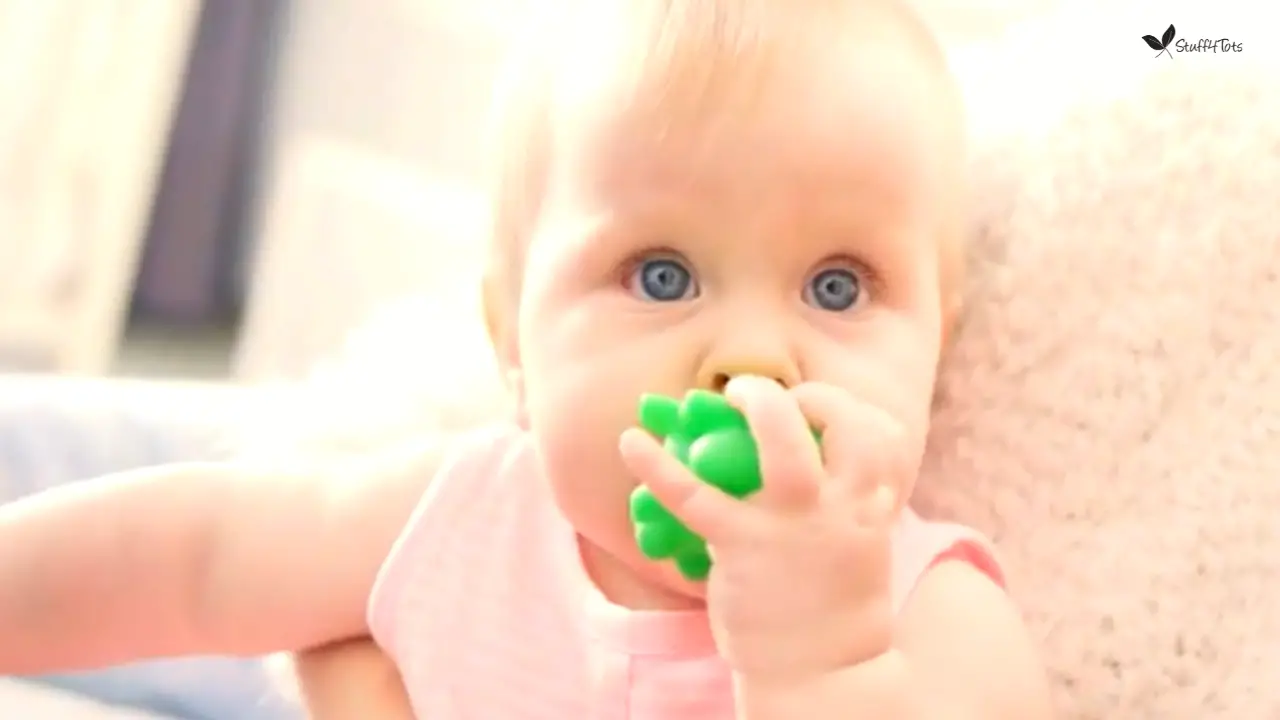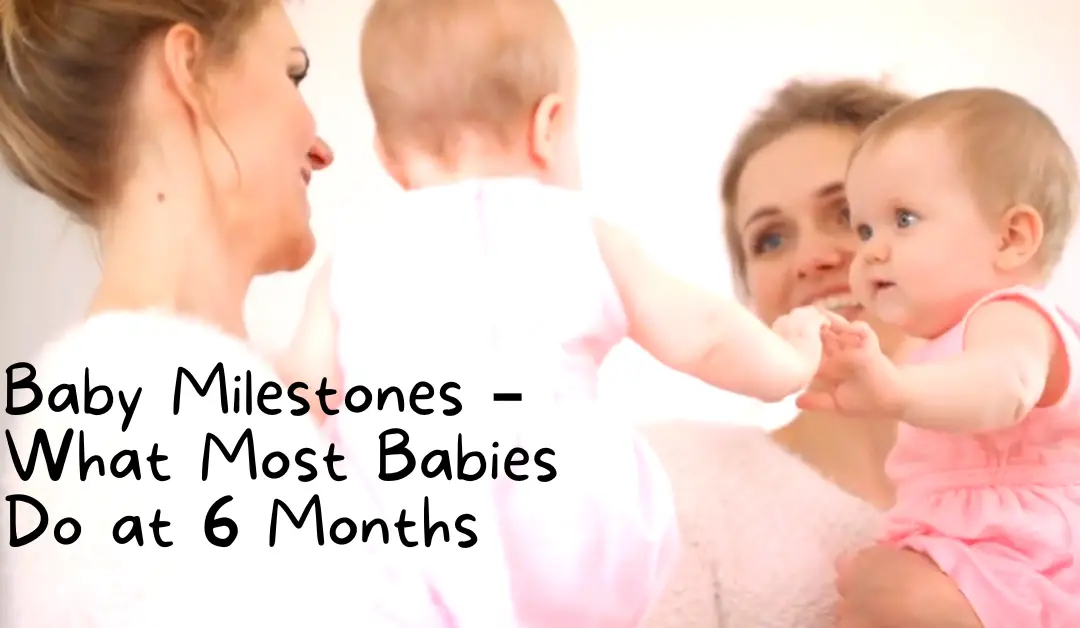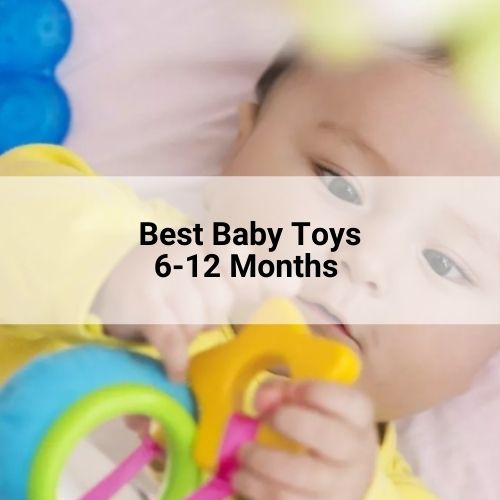Table of Contents
Developmental Milestones
There are things most children can do by a certain age.
It’s helpful to understand the important clues in your child’s development, like how your little one moves, acts, speaks, learns, plays, and interacts.
In this article, we’ll be discussing milestones which your child reaches during the sixth month. These baby milestones are as defined by Centers for Disease Control and Prevention (CDC).
Join us as we explore these first-time actions which are called developmental milestones.
What Can Most Babies Do By Month 6?
First up, let’s look at emotional and social milestones. Your baby:
- Recognizes people familiar to him
- Enjoys looking at himself in the mirror
- Laughs
Second, communication and language milestones. Your baby:
- Takes turns making sounds with you
- Likes to stick his tongue out and blow
- Makes squealing noises
Third, cognitive milestones. These include thinking, learning, and problem-solving. Your baby:
- Places objects in his mouth to explore them
- Reaches to grab a toy that he wants to play with
- Closes his lips to show that he doesn’t want any more food
And the fourth, movement and physical development milestones. Your baby:
- Can roll from his tummy to his back
- Can push himself up with straight arms when on his tummy
- Can lean on his hands to support himself when he’s sitting
You know your baby best.
If you might feel that your baby is not meeting one or more milestones, has lost skills he or she once had, or if your child might have special healthcare needs, please see your pediatrician as early as possible.
During the visit to your pediatrician, it’s important to discuss these things:
- Has your baby lost any skills he or she once had?
- What does your baby like to do?
Please don’t be alarmed if your baby hasn’t quite hit some or all of these milestones by the end of month 6. Human beings are a varied bunch, and we all develop at different rates.
These milestones are “averages”, and some babies will cross them earlier or later than the herd.
There’s no need for worry about milestones in month 6 but there’s no harm in discussing things with your pediatrician if there is anything of concern.
You Play a Great Role in Your Baby’s Learning and Brain Development
You are your baby’s first and best teacher, and it’s you who can help him or her the most with this learning and brain development phase.
Here are some simple activities to try with your baby:
Use “back and forth” play with your baby.
When your baby smiles, smile back at him. When he makes sounds, imitate his sounds. This helps him learn to be social.
Look at colorful pictures in books or magazines with your baby every day. Talk about them.
When he reacts to the pictures, respond to him. For example, if he babbles, answer “Yes, that’s the puppy!”
Point out new things to your baby and name them.
For example, when you’re out on a stroll, point out trees, animals, and cars.
Sing to your baby and play music.
This will help his brain to develop.
Limit screen time on the TV, phone, tablet, etc. to simply video calling with loved ones.
Screen time isn’t recommended for children that are younger than 2 years old. Babies learn more by talking, playing, and interacting with others.
When your baby looks at something, point to it and talk about it.
Place your baby on his back or tummy and put some toys just out of reach.
Encourage him to roll over to reach those toys.
Learn to understand your baby’s moods.
If your baby’s happy, keep doing what you’re doing. If he’s upset, take a break and comfort him.
Discuss with your pediatrician about when it’s best to start solid foods, plus which foods are choking risks.
At this stage, breast milk or formula is still your baby’s most important food source.

Tips and Activities for Baby’s 6th Month
Learn when your baby is hungry or full.
Your baby is hungry when he points to food, opens his mouth to a spoon, or gets excited when he sees food. You’ll know he’s had enough when he pushes food away, closes his mouth, or turns his head away from food.
Help your baby learn to calm down.
Talk softly, hold, or sing to him. Allow him to suck on his fingers or a pacifier. Give him his favorite toy while you hold or talk gently to him.
Hold your baby up while he sits.
Let him look around as you support him. Give him toys to look at while he learns to balance himself.
Thoughts
Keep in mind that it’s not exactly when your baby gets to sit up by himself or utters his first words. What’s more important is that they’re progressing with their development.
In our next article, we’re going to talk about baby milestones for 9-month-olds, so stay tuned! We look forward to seeing you then!
How’s your 6-month-old doing?
We’d love to hear from you! Let us know in the comments below.
Thanks for stopping by!
Related articles you might also enjoy:





